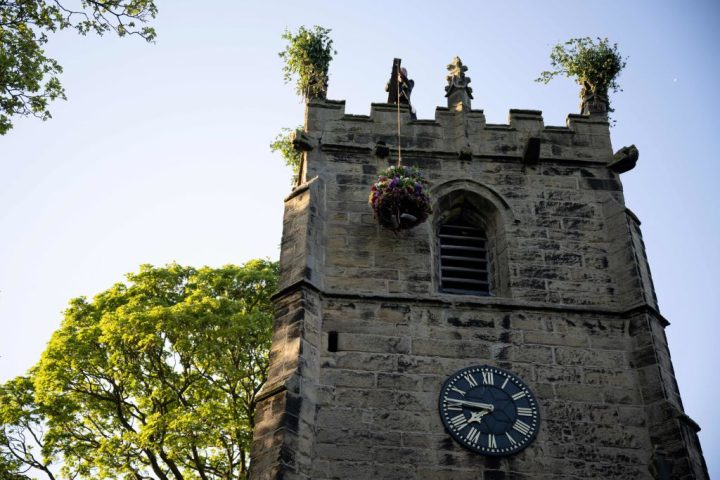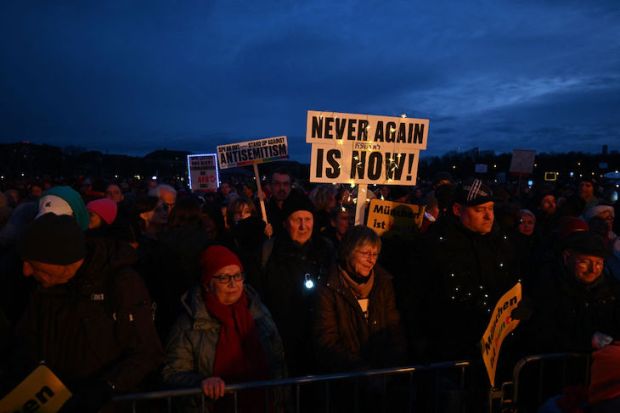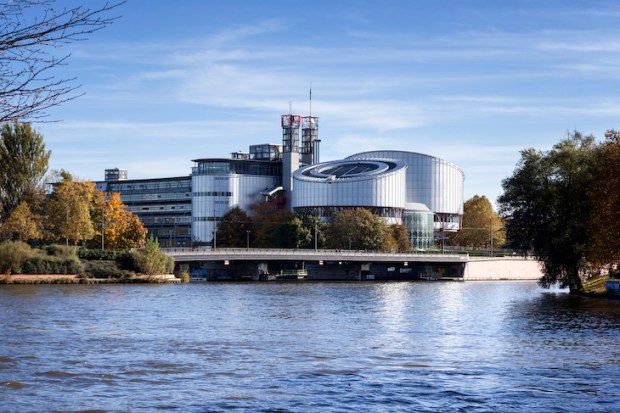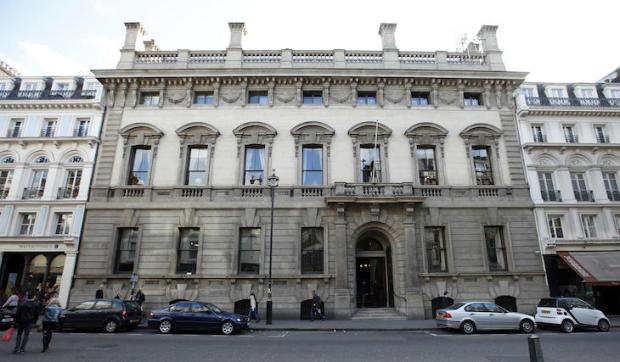One problem clearly emerged after an Islamist fanatic blew himself up at a major pop concert in the Manchester Arena in 2017, killing 22 other people. This was that no one there had a clue about how to react to events of this sort. The government promised action. Action we now have, in the form of the Terrorism (Protection of Premises) Bill announced in the King’s speech.
Unfortunately, as with many well-intentioned ‘something must be done’ measures, this Bill, aimed at requiring a degree of terrorism preparedness at events like this, could well go too far the other way. If enacted as suggested, the cure could end up being worse than the disease.
The cult of allowing the small platoons to muddle along without instructions barked from on high is well worth preserving
We can just about live with what the Bill says about major venues – that is, any building or space with a capacity of more than 800. These would require registration, updated to reflect any changes in arrangements; an annual detailed terrorism risk assessment; a formal security plan; anti-terrorism training for all concerned; and observance of all practical security measures to prevent terrorism or mitigate its effects.
But most such institutions are fairly substantial businesses, run either commercially or by public authorities. Therefore there is likely to be a substantial bureaucracy already in place to push the necessary paper.
The difficulty comes with smaller venues. All premises with a capacity of 100 or more are covered if regularly used for almost any non-domestic purpose whatsoever. That includes business, religion, amusement, sport and study.
This needs to give you pause. Most churches of any size can seat more than 100 – so too can many libraries, museums, art galleries and university lecture halls. So too, for that matter, can numerous church and village halls, not to mention local football or cricket clubs throughout the kingdom, assuming that they have over 100 seats for fans.
The fact that many such institutions are run on a shoestring by volunteers, entirely uncommercially and as a service to one’s fellow man, does not matter. Nor, it seems, is it relevant that most of the time the actual number attending is closer to 20 than 100, as in the case of many churches. All are included.
The duties on these places, while less onerous, would still be substantial. Every single such place faces compulsory registration; a legal requirement to produce a detailed ‘standard terrorism evaluation’ and a need to give compulsory ‘terrorism protection training’ to every single person, volunteer or otherwise, who works there. Any breach of these duties could see an order land from a civil servant to put matters right or an immediate fixed penalty of up to £10,000.
If none but a tiny handful of these premises will ever experience terrorism, this sounds like a very big sledge-hammer being used to crack a very small nut. A hammer, moreover, likely also to cause a good deal of collateral damage.
For one thing, assume that terror comes to the parish church of Walmington-on-Sea during the sermon in the shape of a machete-wielding maniac or a misfit in a suicide vest. The idea that anything much could be done by the vicar swiftly carrying out an anti-terrorism plan and sidesmen relying on their faultless memory of earlier counter-terrorist training is pretty fanciful.
But it’s not only that. Risk assessments, terrorism evaluations, building registrations and similar documents cost time. If they’re so complex as to be beyond the capacity of a volunteer, they cost money too. For an institution run by a small number of volunteers that extra time may not be there.
What’s more, if you are thinking of stepping up, it’s hard to see a better way to discourage you than demanding that you sit in a draughty hall to be compulsorily ‘trained’ in anti-terrorism techniques you face an infinitesimal chance of ever having to use. And if the volunteers can’t manage, the fee of a few hundred to have the paperwork professionally seen to might, in many cases, be more than the institution can afford. A fair number, it seems certain, will simply give up the effort and close, to the enormous loss of the local community and to no, or no perceptible, gain in the fight against terrorism.
It is very hard to see any justification for this. After all, at the moment, users of premises like church halls or sports clubs presumably know about the risk, albeit very small, of a terrorist attack and are nevertheless happy to run it.
Just think of the woman in the NADFAS decorative and fine arts society meeting at the village hall, or the man cheering on his town football team from the rickety stands at Newtown AFC. If you were to ask them whether they want the state to take this choice from them and call for anti-terrorism measures that are almost certainly unnecessary and may deprive them of their amusement, you are likely to get a very dusty answer.
There is also a more subtle social point. Much of Britain’s attraction lies precisely in its embrace of non-professionalism: in its acceptance of entrusting the running of local institutions to amateurs. Even if they don’t do so as well or perhaps as safely as a trained specialist, they show their goodwill by volunteering to help the community as best they can. To swap this for a marginal increase in safety as calculated by some pen-pusher in Whitehall is not wise government.
By all means tighten up the rules for big venues, and thereby vindicate the Manchester Arena victims. But leave the small ones alone to do their own thing in their own way. Even if there is a small risk to human life, the cult of allowing the small platoons to muddle along without instructions barked from on high is well worth preserving. Who knows: it might even get Rishi the odd rural vote.
Got something to add? Join the discussion and comment below.
Get 10 issues for just $10
Subscribe to The Spectator Australia today for the next 10 magazine issues, plus full online access, for just $10.




















Comments
Don't miss out
Join the conversation with other Spectator Australia readers. Subscribe to leave a comment.
SUBSCRIBEAlready a subscriber? Log in